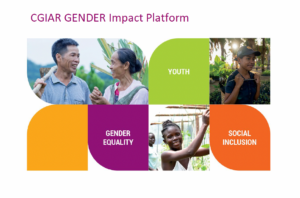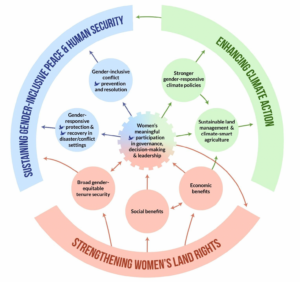This DIIS policy brief, is based on the pilot study ‘Climate change, migration and women’s work’, a collaboration between DIIS and the Danish Red Cross (DRC), with assistance from the Nepal Red Cross Society (NRCS) and funded by the DRC. The study included a desk review of literature, reports, and statistics.Data collection and analysis were based on seven days of ethnographic fieldwork and interviews with 19 women and 6 community stakeholders in the Dhanusha district of Madhesh province in Nepal. Based on the study, a short documentary called Somehow She is Managing has been produced.
Key findings
Both ‘everyday’ climate adaption, such as securing livelihoods, and long-term climate adaption, such as investing in and building robust houses, require funds. Labour migration contributes to financing both types.
It is important to consider how climate change intersects with traditional and gendered dynamics, such as dowry. Crucially, due to traditional gender dynamics, men’s climate mobility can amplify women’s immobility.
When men’s labour migration fails or the stream of remittances end, there are often no other ways for women to finance climate adaption. Therefore, alternative ways to finance long-term climate.
Authors: Sofie Henriksen, Sine Plambech, Kolja Dahlin & Benedikte Raft
Source: Danish Institute for International Studies




